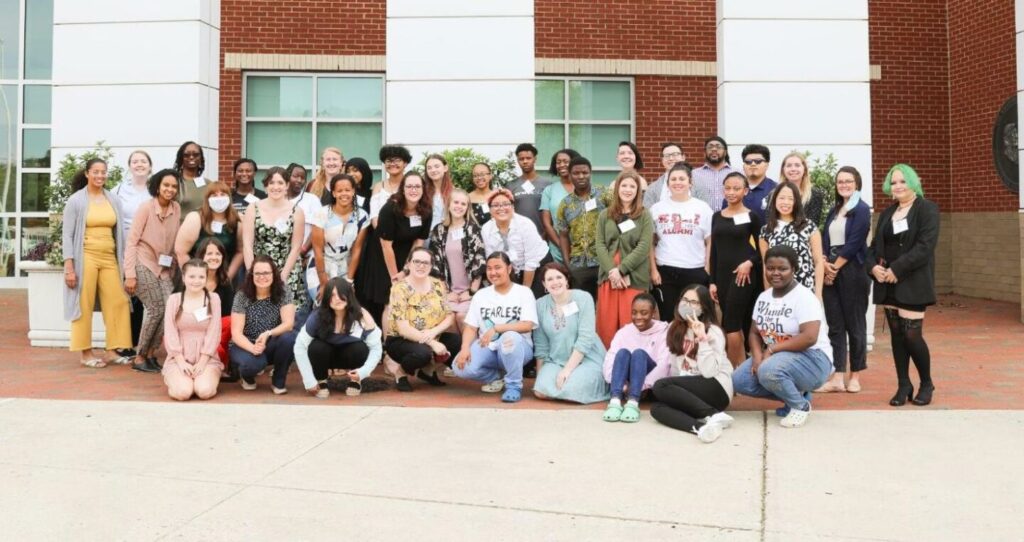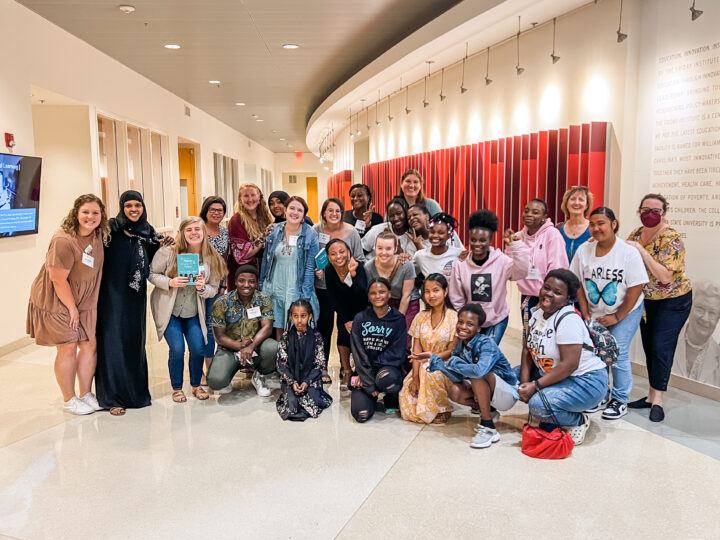About LCI

The Literacy and Community Initiative (LCI), a collaboration between the NC State College of Education and the Friday Institute for Educational Innovation, partners with community-based organizations to examine, support and promote the power of youth voices. Our mission is to amplify student voices through student publications, advocacy and leadership. Our Motto is: Write, Engage, and Lead.
LCI works primarily with community-based organizations that serve historically and currently underserved students. We emphasize working with communities who are underresourced and marginalized due to social inequities and injustices. Our passion is empowering youth to lead our communities through their words and actions.
Currently, LCI partners with four community-based organizations: Bull City YouthBuild, Juntos NC, CORRAL Riding Academy and Refugee Hope Partners. The LCI experience centers on a publishing curriculum in which students in these organizations write and publish books that enable them to engage and lead their communities through public discourse and activism.
Our Beliefs
- Literacy is shared. We believe that the literacy work with and among our community partnerships allows multiple stakeholders in education (professors, teachers, students, community leaders, family members, etc.) to make visible the assets of marginalized students within and beyond the community.
- Literacy in out-of-school contexts matter. We believe that literacy in out-of-school contexts can be sites of social changes especially for students who are underserved and often invisible in formal schooling spaces.
- Literacy advances access to opportunity. We believe literacy is powerful—reading, writing and speaking are tools that lead to personal and social change, especially for underserved populations.
- Literacy is a vehicle for community engagement. We believe that literacy is a vehicle for critical thinking and action for the self, community and world. Therefore, literacy leads to increased self-esteem, critical action and global citizenship.
- Literacy is a form of leadership. We believe that literacy is a form of leadership, and when literacy lies in the hands of our most vulnerable populations, we can close the opportunity gaps starting with our students who lead the way.
